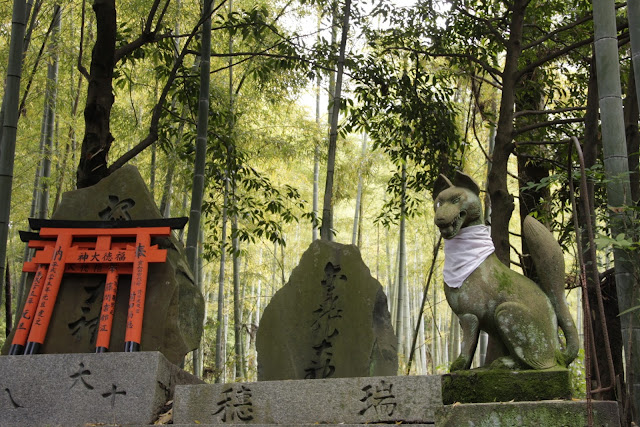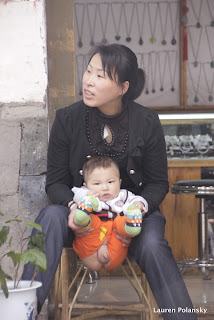One of the hardest things
about keeping a blog is deciding what's worth posting. Ridiculous or
not, one of my biggest frustrations has been the fact that so many of
my entries are inspired by the kindness of others. Don't get me
wrong. I will never get sick of friendly strangers, nor will I ever
take their goodness for granted – not for a second. I consider
myself incredibly lucky to have had one good experience after another
during a thirteen-month path that was wide open for mishap. A smart
traveler should recognize and acknowledge good fortune, lest
Mama Nasty, Good Luck's nemesis, decides to visit, bringing any
of her favorite reminders to the ungrateful or unsuspecting traveler:
Theo the Thief, Bobby Bad Weather, Calamity Carl, Donny Danger, Sammy
Sicko, or anyone else from the Crisis Crew. So again, ungrateful
I am not.
Still, there comes a time
when the trials and tribulations must be shared. So I'm going to
put the bowl of cherries back in the fridge next to the peaches and
cream, and tell you what has surprised me recently.

 I spent last week on the
island of Crete, a famous European vacation destination for
who-knows-how-long. This is my first time in Greece, and prior to
coming, I had always imagined a blue and white paradise where
hairy donkeys and women quietly pass by white-washed walls and heavy men chat and laugh loudly as they share olives and feta. I imagined
striking up conversations with locals in restaurants and having a
crush on the owner's son, who works all day long but smiles like he
won the lottery when I walk in, and takes me out on his motorbike at
night when he finishes his shift.
I spent last week on the
island of Crete, a famous European vacation destination for
who-knows-how-long. This is my first time in Greece, and prior to
coming, I had always imagined a blue and white paradise where
hairy donkeys and women quietly pass by white-washed walls and heavy men chat and laugh loudly as they share olives and feta. I imagined
striking up conversations with locals in restaurants and having a
crush on the owner's son, who works all day long but smiles like he
won the lottery when I walk in, and takes me out on his motorbike at
night when he finishes his shift.
I didn't imagine
that people could be so rude – or not that they could, but
that they would be. I am shocked by the number of occasions on
which I needed to ask a bus driver a simple question while boarding
and was greeted with annoyance or impatience. In restaurants I
sometimes found the staff to be unfriendly as well. The biggest
shocker though, was how many fallen faces and lost smiles I was met
with upon the moment I responded to the question “Where are you
from?” It seemed that most of the times when I admitted – because
that feels like the right verb - being from the United States, I was
received with disappointment or disgust. I became uncomfortable,
intimidated, and when the dreaded question would resurface, as it
often did, I was already prepared to hang my head and end what could
have been a pleasant exchange.
 One day I went for lunch
with a Greek friend who I met earlier this year. We had a wonderful
lunch. He was friends with the owner of the restaurant, who brought
us plate after plate of specialties; stuffed aubergine, zucchini
flowers, stewed vegetables and beans, rose wine and more. It was an
incredible meal, and I was enjoying the company until the
panna cotta came and my friend
began to explain why he isn't so sure he'd like to visit the U.S. I
listened quietly for about five minutes as he described to me how the
Jews are trying to control everything there and have too much power
in large corporations. He explained that Greeks, especially in Crete,
are well-aware of these and other things that the news doesn't show.
I found myself wide-eyed and shaking my head, but somehow unable to
find the right words. All I could say was that it wasn't true, and
that the concern sounded rather Nazi-like. (I also silently
wondered if the word cretin
is related to Crete...)
So when I went to dinner alone the following evening and the waiter
asked me, after ordering my food, if I was Jewish, I felt a surge of
something heavy come over me like a lead blanket. It seemed that many
of my conversations in Chania ended in me feeling sad. If American
Jew wasn't a double-whammy before, it had certainly become one.
One day I went for lunch
with a Greek friend who I met earlier this year. We had a wonderful
lunch. He was friends with the owner of the restaurant, who brought
us plate after plate of specialties; stuffed aubergine, zucchini
flowers, stewed vegetables and beans, rose wine and more. It was an
incredible meal, and I was enjoying the company until the
panna cotta came and my friend
began to explain why he isn't so sure he'd like to visit the U.S. I
listened quietly for about five minutes as he described to me how the
Jews are trying to control everything there and have too much power
in large corporations. He explained that Greeks, especially in Crete,
are well-aware of these and other things that the news doesn't show.
I found myself wide-eyed and shaking my head, but somehow unable to
find the right words. All I could say was that it wasn't true, and
that the concern sounded rather Nazi-like. (I also silently
wondered if the word cretin
is related to Crete...)
So when I went to dinner alone the following evening and the waiter
asked me, after ordering my food, if I was Jewish, I felt a surge of
something heavy come over me like a lead blanket. It seemed that many
of my conversations in Chania ended in me feeling sad. If American
Jew wasn't a double-whammy before, it had certainly become one.
 Needless
to say, I felt that a physical move was necessary in order to achieve
an emotional move. No matter how beautiful my surroundings, I was in a bad place emotionally and could feel Crete
bringing me down. So on a bit of a whim, I decided to cut my time
there short and head to another island. It could not have been a
better move.
Needless
to say, I felt that a physical move was necessary in order to achieve
an emotional move. No matter how beautiful my surroundings, I was in a bad place emotionally and could feel Crete
bringing me down. So on a bit of a whim, I decided to cut my time
there short and head to another island. It could not have been a
better move.
Because
I arrived in Mykonos without having made any plans or doing any
research, I did not have a place to stay or any idea what to do. Once
again, Couch Surfing saved the day. Thanks to a few dedicated members
of Mykonos' CS community, my arrival and transition to Mykonos were
seamless. Arriving at the busy travel agency where my CS contact
works, I had the most unexpected type of welcome. First Sakis told me
to have a seat and he would find me a place to stay. So I sat down
with one of his co-workers, Lefteris, a very friendly man with whom I
then spent over an hour chatting. About ten or fifteen minutes into
our conversation, he said, “Okay, you're from Boston and also live
in Brasil, but what are your family's origins?” “Russian, I
responded.” I could see that something registered as his eyes
narrowed... “Wait – are you Jewish?” I paused, exhaling an
audible sigh of defeat, and nodded my head. “Yeah.” He clapped
his hands together and his face lit up. “I don't like to make
generalizations because we're all individuals, you know. But I just
love Jewish people! So smart! So logical!” He went on, and I
listened, trying not to beam. He then proceeded to tell me how polite
and pleasant American tourists were. In the time that I sat there and
listened, this stranger restored something in my heart that I almost
believed to be broken beyond repair.
Each
day when I went into the center of Mykonos, I would visit them at the
agency and we would sit and talk about many things. On my third day I
needed to switch accommodation and it wasn't looking good. The
weekend had arrived and all the hotels in the center were booked
solid. I sat in the agency, concerned, trying to let go of the fact
that on my second-to-last day in Mykonos, I would not be able to go
make the most of the day because I needed to focus on finding a place
to stay. Lefteris looked at my face and sympathized. “Come with
me”, he said. I followed him as we crossed the square into a
bakery. He told me about all the different desserts that were encased
in the glass before us and told me to pick the one I wanted. I chose
a piece of baklava, he ordered a piece of kadaifi, and we carried
them back to the agency, sat and ate them and laughed.
 That
evening, Sakis told me I could stay at his home if I didn't mind
being away from the center of town. He arranged a ride there for me
since he had to stay at work, and I sat on the porch looking out at
the sunset over the sea, wondering how I always manage to meet these
guardian angels.
That
evening, Sakis told me I could stay at his home if I didn't mind
being away from the center of town. He arranged a ride there for me
since he had to stay at work, and I sat on the porch looking out at
the sunset over the sea, wondering how I always manage to meet these
guardian angels.
 I
wound up loving Mykonos so much that I changed the date of my
departure from Greece. On the day that I did leave, I went to the
agency to say goodbye to Sakis and Lefteris. They were the first
people I met on the island, and I wanted them to be the last people I
saw before leaving. After all, they played a key role in my positive
state-of-mind since leaving Crete. I was planning to take the bus to
the port, but Lefteris insisted on driving me to the ferry. Imagine
such warmth and kindness from these two perfect strangers who so
quickly became my friends!
I
wound up loving Mykonos so much that I changed the date of my
departure from Greece. On the day that I did leave, I went to the
agency to say goodbye to Sakis and Lefteris. They were the first
people I met on the island, and I wanted them to be the last people I
saw before leaving. After all, they played a key role in my positive
state-of-mind since leaving Crete. I was planning to take the bus to
the port, but Lefteris insisted on driving me to the ferry. Imagine
such warmth and kindness from these two perfect strangers who so
quickly became my friends!
On
the ferry, I was lucky to find a cushioned bench that was long enough
to lay down on in a curled-up position. The ride to Athens would be
five hours long, and I was exhausted. Thirty or forty minutes into
the ride and finally comfortable, the ferry made a stop at a small
island and a surprisingly large mass of people boarded. Four older
women, ranging from forty-five to near eighty appeared in the area
where I lay and began squawking and fussing over the space I was
occupying. I slowly sat up, asked them with a smile to just wait a
moment for me to move my things, and watched as they all huffed in
disapproval at my choice to lay on that bench. (I didn't realize the
ferry would be making stops.) They didn't speak English, so all I
could do was laugh off their admonishment as one by one, they put
their things down and occupied every inch of the bench and its
surroundings, leaving me squeezed tightly between them, journal in my
lap.
They
talked over me and I smiled. They passed things across my lap and I
smiled. And then the eldest of the group with a raisin-like face,
took out a box of food and put it on her lap. I motioned to the small
piece of round table in front of me, offering her to switch seats.
“Endaxi, endaxi” (that's okay) she replied. And then she
cut up her crepe, and handed me a large piece in a napkin. I tried to
thank her and decline, but she wouldn't have it. She pointed to her
chest and said something I didn't understand, except for one word,
which she repeated. “Mama”. I smiled and accepted her offering,
and the woman on the other side of me patted my arm gently.
Two
hours into the ride, the woman to my right moved over, insisting that
I use the table to write instead of balancing my journal in my lap.
Half an hour later she was offering me fresh bread. Three hours into
the ride, I managed to understand that they were asking me if I'm
married. When I said “No”, they all started clapping, patting me
on the leg and saying “Bravo, bravo!” Smiling, the sun-dried
woman pointed to her head, suggesting that I am smart, I think. Then
she spoke to me again in Greek. The youngest woman translated. “Come
and visit my home in Athens, she said.” and then the woman wrote
down her name and phone number. Soon after, the ferry arrived at the
port and they all hugged and kissed me goodbye and the elderly woman
repeated her invitation.
These
guardian angels...they're everywhere.

















































